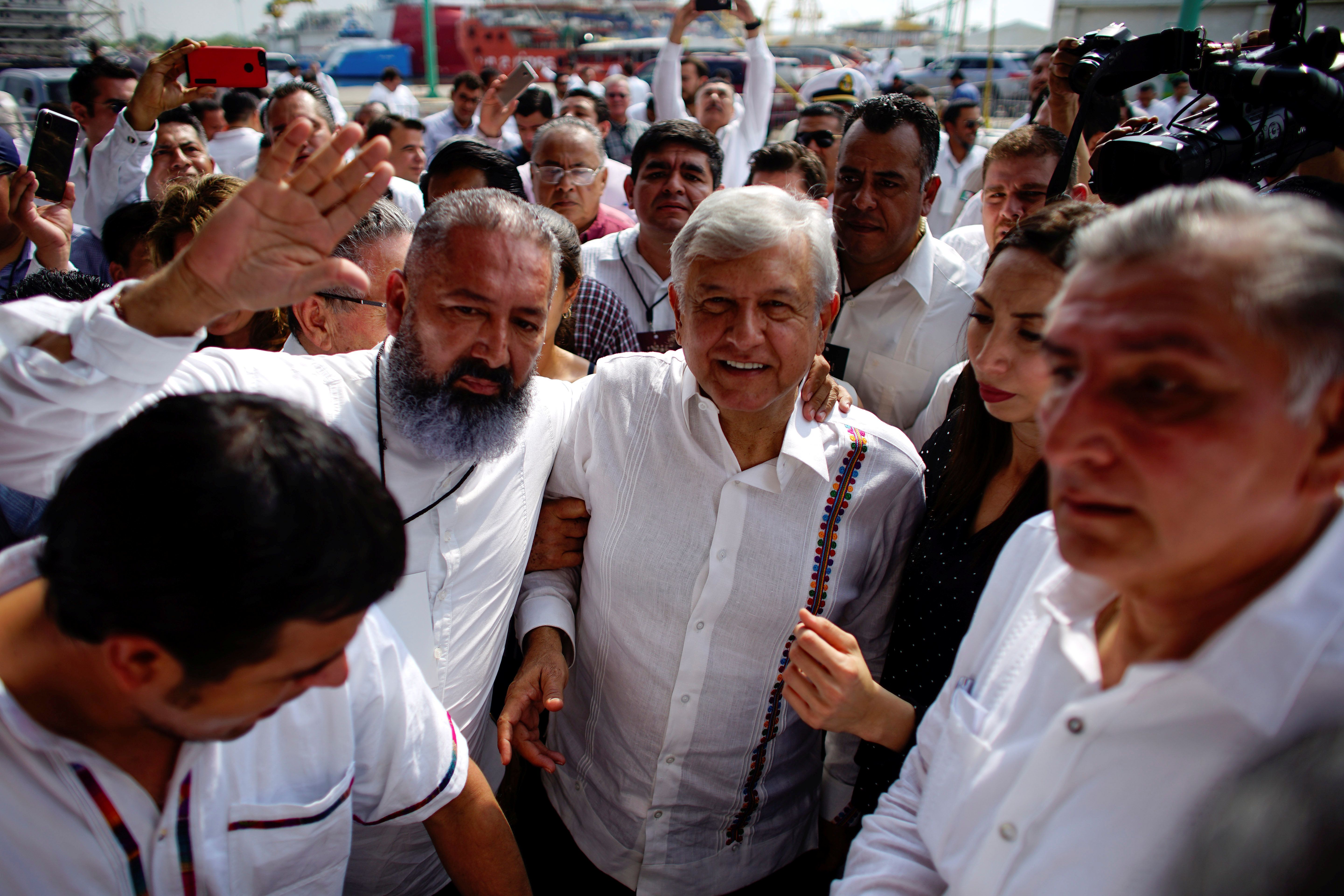Mexico's newly-inaugurated president, Andres Manuel Lopez Obrador (AMLO), may have just scored a big political victory after a rocky start to his tenure.
The US State Department announced yesterday its intention to deliver $5.8 billion in aid and investment to Central America to stem the tide of migrants flocking toward the US border. While much of the support falls under existing commitments, Mexico's foreign minister welcomed it as "good news for Mexico."
AMLO has worked energetically since taking office to sell the White House on a "Marshall Plan" of support to address the region's growing migrant crisis. The US commitment is a preliminary sign that he's at least being heard.
The big picture: Upon taking office, the Mexican president was caught between an irresistible force and an immovable object. To his south, people fleeing poverty and violence in Central America have been crossing Mexico's porous southern border on their way to the United States. To his north, President Trump has made tightening border security his number one domestic political issue. AMLO didn't want to antagonize Mexico's main trading partner by letting more migrants pass through.
The domestic picture: AMLO, who is grappling with a high crime rate and strained resources at home, also recognizes that taking in migrants creates its own set of political headaches. Asylum requests in Mexico have skyrocketed over the past five years, reaching 14,544 in 2018. Those numbers were expected to rise after AMLO's administration committed to take in asylum seekers with cases currently pending in the US. While he campaigned as a compassionate voice on immigration, Mexico's new left-wing leader spied the need for a grand solution. The US funding will contribute to a $30 billion of aid package envisioned by AMLO.
The global picture: AMLO even dangled the prospect of Chinese investment to bring Trump to the table, according to the NY Times – reasoning that the US might be more willing to pay up if it feared that China might try to expand its influence in the region by opening its wallet. For context, Beijing is already a big investor and trading partner in the more prosperous parts of Latin America. While a quixotic idea to build a canal through Nicaragua hasn't really gone anywhere, China has been investing in infrastructure in some smaller Central American markets. It's also offered carrots to regional governments to get them to drop diplomatic recognition of Taiwan in favor of Beijing.
Whatever the motivation for the US decision, the support for Mexico's investment and aid program is an important political reprieve for Lopez Obrador just a few weeks into his term.
More For You
In this Quick Take, Ian Bremmer weighs in on the politicization of the Olympics after comments by Team USA freestyle skier Hunter Hess sparked backlash about patriotism and national representation.
Most Popular
100 million: The number of people expected to watch the Super Bowl halftime performance with Bad Bunny, the Puerto Rican superstar and newly minted Album of the Year winner at the Grammys.
Brazilian skiers, American ICE agents, Israeli bobsledders – this is just a smattering of the fascinating characters that will be present at this year’s Winter Olympics. Yet the focus will be a different country, one that isn’t formally competing: Russia.
What We’re Watching: Big week for elections, US and China make trade deals, Suicide bombing in Pakistan
Japanese Prime Minister Sanae Takaichi, president of the Liberal Democratic Party (LDP), appeals for a candidate during a street speech of the House of Representatives Election Campaign in Shintomi Town, Miyazaki Prefecture on February 6, 2026. The Lower House election will feature voting and counting on February 8th.
Japanese voters head to the polls on Sunday in a snap election for the national legislature’s lower house, called just three months into Prime Minister Sanae Takaichi’s tenure.
